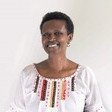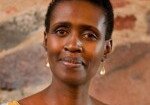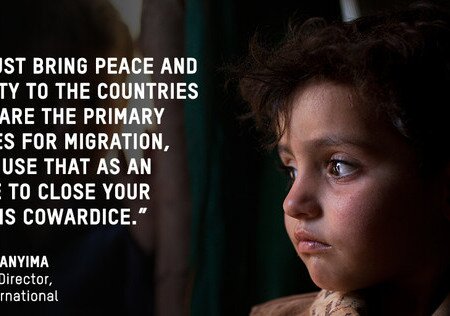Winnie Byanyima

Winnie Byanyima是國際樂施會總幹事。 在婦女權利,民主治理和建設和平等方面的工作,她都具領導地位。
倡导工作2016年11月25日
文:Winnie Byanyima
她们说:「受够了!」
我妈妈是一名社区领袖,她在我们的村里庄带领一个妇女小组,团结了村内的妇女,为自身及其女儿争取权益,令我留下深刻印象。这些妇女大部分出身贫穷,她们在妇女小组中,了解到习以为常的「社会规范」如何剥削她们应有的权益,或遭暴力对待。
倡导工作2016年1月19日
Yet again I am attending the World Economic Forum in Davos, warning about the global inequality crisis – and proposing steps to tackle it. Yet again, Oxfam has released shocking new statistics which illustrate how severe this crisis has become: 62 people now have the same wealth as the poorest half of the planet – that’s 3.6 billion people.
I am not the only one raising the alarm: Consistently now, we hear concern on inequality from voices such as President Obama, the Pope, Christine Lagarde of the IMF, and people on the street. And things are starting to change. But not enough.
It’s not enough because the gap between the rich and poor has grown dramatically in the past 12 months. This time last year 80 people owned the same amount as the poorest half of the planet and Oxfam was predicting the wealth of richest one percent would overtake the rest of us by 2016 – this particular milestone was passed ahead of schedule in October.
The consequences of such rapidly growing and extreme inequality are huge. Economic inequality can act as brake on growth, slow poverty reduction efforts, and spark social unrest. Oxfam sees the devastating impact of extreme inequality in many of the countries where we work – from the school children of South Africa whose education is suffering because of lack of government funding, to the garment workers of Myanmar who work long exhausting hours for global suppliers but who can’t cover their rent and feed their families on what they earn.
倡导工作2015年11月30日
As I arrive in Paris, I will be remembering the faces of the women in the village where I grew up in Uganda. They rely on the land, herding cows, and growing crops – and they are amongst the 3.5 billion poorest people around the world whose daily lives are perilously exposed to changes in the climate.
Climate change is a fundamental environmental, economic, humanitarian and security threat to our world. It isn’t “another crisis” we can somehow chose to prioritize above or below others. Within Oxfam, we also see it as a crisis of inequality, where poor and vulnerable people – and especially the women of the South – are shouldering hugely disproportionate risks.
The UN climate talks in Paris next month will likely result in a global deal. The big question is what will the deal look like – and will it benefit the elites and the big emitters only, or the most vulnerable too?
I’m optimistic that humankind has the technical and political capabilities to run a cleaner, more stable and safer world, one that can deliver on the ambitious new Sustainable Development Goals. Countries can find the money, as they did $11 trillion to bail out the banks.
人道救援2015年9月06日
There are stirrings of a popular backlash against the negligence shown by many European governments towards the thousands of desperate people who have fled their homes. It seems to have taken the devastating photograph of three-year-old Syrian boy Aylan Kurdi on a Turkish beach, where his body was washed ashore this week.
Thousands of women, children and men have died en route to Europe this year. Last week, over 100 people drowned when a boat capsized soon after departing the Libyan coast, while in Austria, 71 bodies were found in a truck.
It is scandalous and unacceptable that it took so long and so many deaths for a wake-up call. Underpinning this negligence is a created sense of fear that could be summed up in the following: What will these migrants bring to our communities? Who are these “other” people?
There are energetic but misplaced sentiments about fence building, repatriation and the economics of migration.





